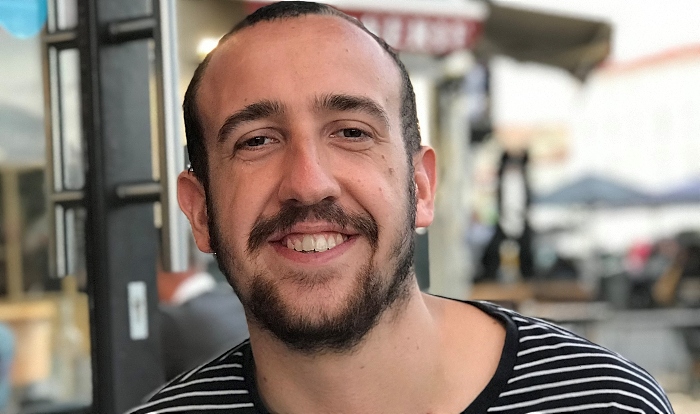
The heartbroken Nantwich parents of law student David Nash say they are “relieved” that an inquest into his death concluded face to face appointment with his GP could have saved his life.
The coroner said that the 26-year-old’s death could have been avoided following three days’ of evidence at this inquest in Wakefield.
David died at The General Infirmary at Leeds due to a brain-stem infarction arising from a cerebellar abscess – an infection in the brain.
This was caused by undiagnosed mastoiditis – a serious bacterial infection in the mastoid bone behind the ear.
In evidence given by medical experts, they agreed that during the fourth call to Burley Park GP Practice on November 2 2020 there were “red flags” in David’s condition that should have led to him being told to see a doctor urgently.
After the hearing, David’s parents Andrew and Anne said: “As a family we have been devastated by David’s death.
“He was our wonderful son, brother, and friend.
“He had a strong sense of right and wrong, and always looked out for others.
“We in turn have spent two years seeking answers on his behalf, and to make sure that others don’t die as David did. We know that is what he would have wanted.
“We are relieved and grateful to Coroner Abigail Combes for concluding that, despite the pressures of the Covid pandemic, David could, and should, have been seen face to face at Burley Park Medical Practice on the morning of 2 November 2020, and that this would probably have led to a hospital admission, and earlier care.
“We are both saddened and vindicated by the finding that the simple, and obviously necessary, step of seeing him in person would have saved his life.
“As we heard during the evidence, there were missed opportunities in terms of the 111 calls that were made on David’s behalf later that day, and there were mistakes made at the hospital, but David was already extremely unwell by the afternoon of 2 November, and it is unclear whether he could have been saved by different steps having been taken.
“We believe that the neurosurgeons who tried to save his life with emergency surgery were trying their best for him.
“Our main focus has always been on the fact that he should never have been allowed to deteriorate to that point in the first place.
“We are relieved that the organisations involved in David’s care have made changes to their policies and procedures following this inquest process: we hope that, by shining a light on his case as we have done, we will have helped prevent future deaths from occurring, and that we have done David justice.
“Finally, we want to take this opportunity to thank all those who have supported us in this difficult process and also wish to thank Iain Oliver from Ison Harrison Solicitors and our barrister, Rose Harvey-Sullivan from 7 Bedford Row Chambers. Their support, assistance and guidance has been invaluable to us.”
The Coroner concluded, assisted by the expert evidence, that: “David died on 4 November 2020 at Leeds General Infirmary as a result of a brain-stem infarction, arising from a cerebellar abscess caused by mastoiditis. On 2 November 2020 there was a missed opportunity to direct David to seek face-to-face care during his GP appointment that morning. Had he been directed to seek face-to-face or urgent care by the GP Practice he would likely have undergone neurosurgery approximately 10 hours earlier than he actually did, which at that time it is more likely than not would have been successful.”
Iain Oliver, solicitor from Ison Harrison Limited, said: “The scope of the inquest became wider than initially expected due to the possibility that the issues with NHS 111 or indeed at the hospital may have contributed to David’s passing and the family are
grateful to the Coroner’s Service for permitting these avenues to be explored as well as grateful to NHS Digital and the Trust for their candour.
“This inquest has highlighted the limitations of telephone consultations with GPs and the need for patients to be seen in person wherever that is possible to ensure that proper assessment of conditions can be made.
“It has also highlighted the need for continuity of care within GP practices to ensure that the patient is considered holistically, particularly where there are repeated consultations over a short period of time.”



















Recent Comments